P.E.I.-based screenwriter directs first full-feature film — in China
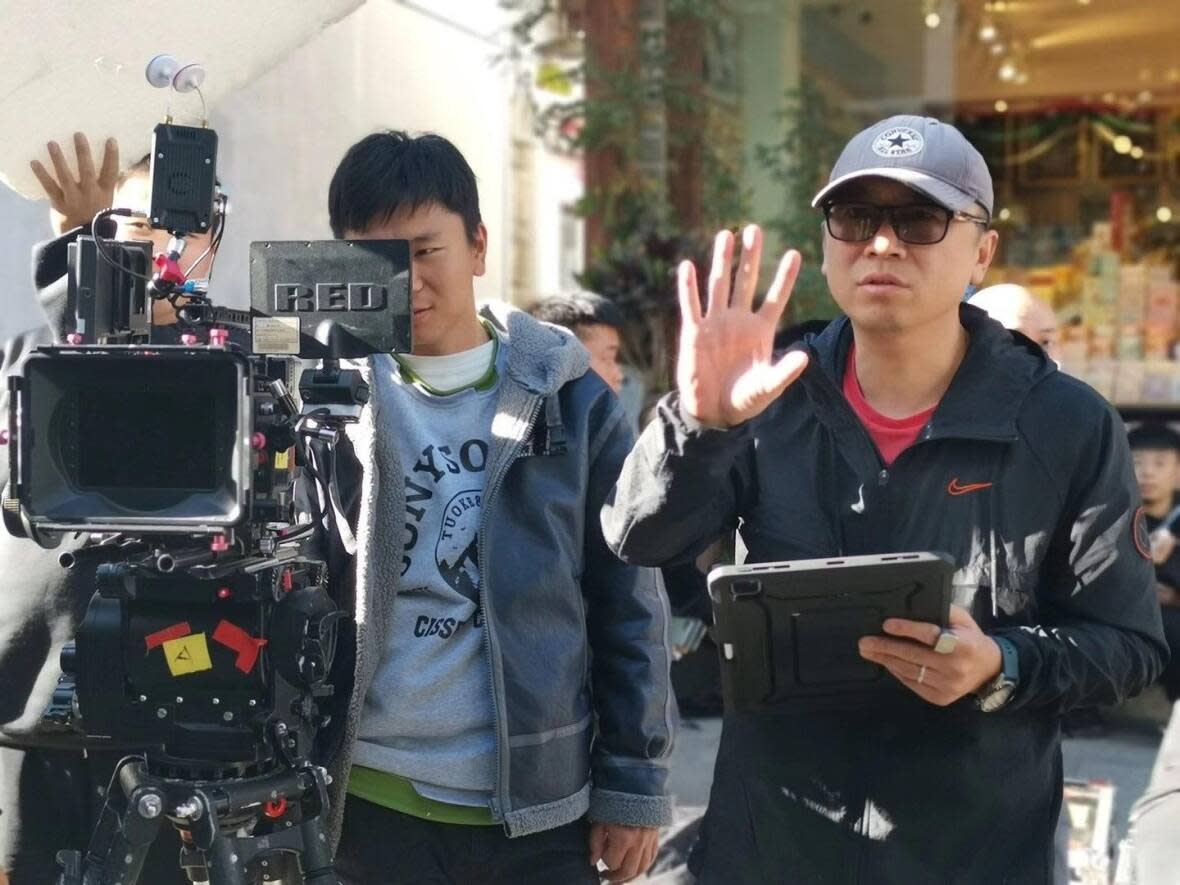
Guests at the Charlottetown hotel where Bo Ding works as a part-time housekeeper might be interested to learn that he recently directed his first feature film, Dream Pawnshop, in the largest film market in the world — China.
Before immigrating from China to Canada, Ding wrote the screenplay for a biopic about a famous Chinese geologist and some TV episodes for a family dramedy that aired on a station in Hainan. He also wrote a travel journal about the time he rode a bicycle from Sichuan to Tibet.
But after arriving in Canada three years ago, he found it challenging to find a job that had anything to do with what he loved: writing.
"I didn't know how to make a film in Canada," he said. "Because the language, because I don't know how to work here. And you know, P.E.I. is a small town."
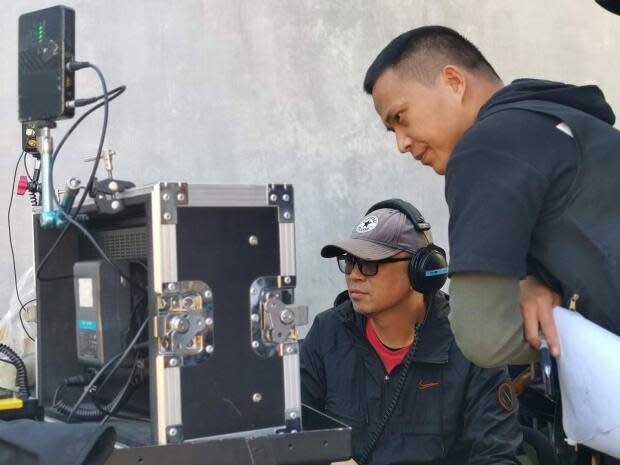
During the time he was jobless here, he started to work on his most ambitious project yet — writing the draft of a screenplay that would eventually become his full-length directorial debut.
But first he had to go back to China. He said he knew that there, if he picked a location and had enough money to hire the right people, he could make a movie. He chose the southwestern city of Dali in China's Yunnan province for the film shoot's location.
It's a very important thing to my life, because I did it and I finished a full film, and I can make it better next time. - Bo Ding
"Here [on P.E.I.], I don't know how to make my story to be a film. It's difficult."
But no matter where you are, filmmaking is a difficult process. And to make one in China, you must also learn to navigate a media apparatus that's controlled by the state.
"If you want to make a movie, you must have had the government to permit [it]," he said.
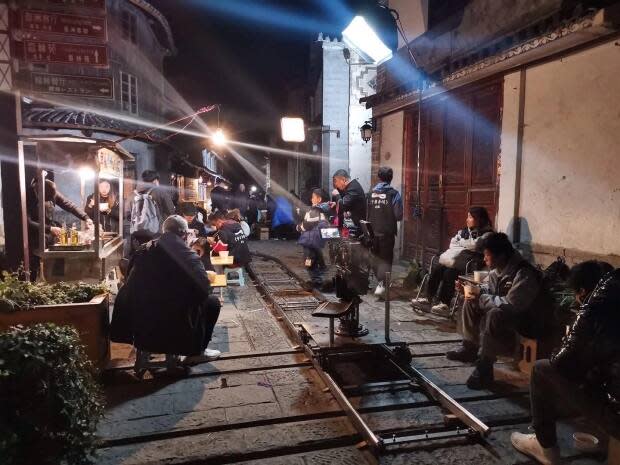
"That is very difficult and uncomfortable, and the way you finish it, you must take your film to them ... So the film is not [only telling] a good story. It isn't that easy. You must make the movie and think more much about the government permit you to do that film."
'Everybody have dream'
Ding said he's not interested in talking about politics or history with his art — he wants to tell stories about common people and their lives.
Dream Pawnshop is a comedy about a man who every 12 years "pawns" his dreams at a store for things that tangibly benefit him.
The premise is straight from a folktale, and Ding said that's on purpose. He wanted the story to reflect themes that were as universal as a Grimms' fairy tale.
"When [we're] 16, everybody have dream, different dream and then we change it, we forget the dream," Ding said. "We grow up, everything is changed, it change and it change. So my film is about this."
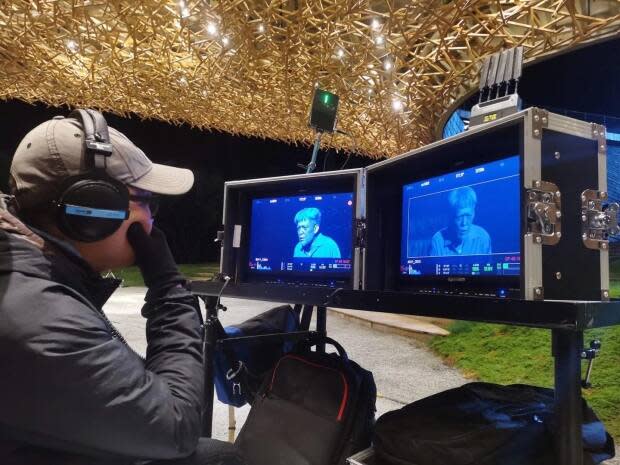
Learning to direct — 'it's task work'
As the camera rolled, he was also learning how to direct a film for the first time.
"I must learn how to do and I must think how can you do to better," he said. "Everyday you must [make] a choice, many choice. Do we finish it, do we make this later? … It's not art work, it's task work."
He said much of his time was consumed by managing schedules and finding creative ways to get the elements he wanted for the movie — like special effects — on a very tight budget.
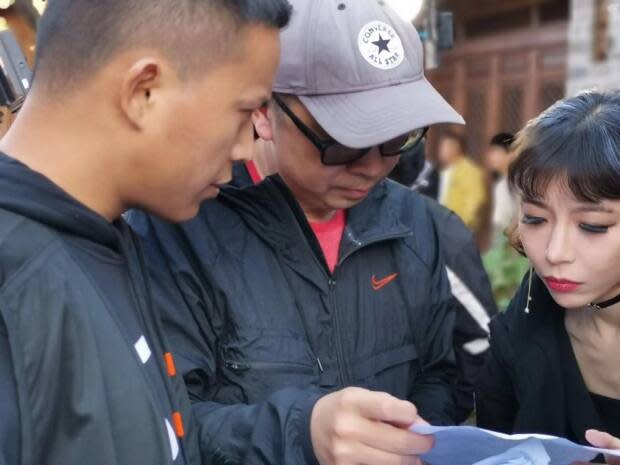
"We worked about 18 hours every day," he said. "Sometimes you're thinking you want to do another way to put up the picture to everybody but you can't because we didn't have enough money, have the time, the [technology], enough men work for you."
Dream Pawnshop was finished in two years and took about $200,000 to make. Ding said he got most of that money from friends or invested it himself.
His film was approved by Chinese authorities, but they did ask for one change: A scene where a police officer tells a joke had to be cut, they told Ding, because Chinese police officers don't joke around.

First public showing
Dream Pawnshop never did have a screening at a Chinese cinema, and Ding is waiting for the authorities' approval to distribute it online.
However they did give him the green light to present it to others, so in June, he held a screening at City Cinema in Charlottetown — the first and only time Dream Pawnshop has ever been shown to the public.
More than a dozen or so people showed up, most of them Chinese newcomers.
After the screening, Ding said he thought the movie wasn't perfect and that he could have done better with more time and money. But he was happy to see that most people seemed to have enjoyed it. He even noticed one audience member tearing up.
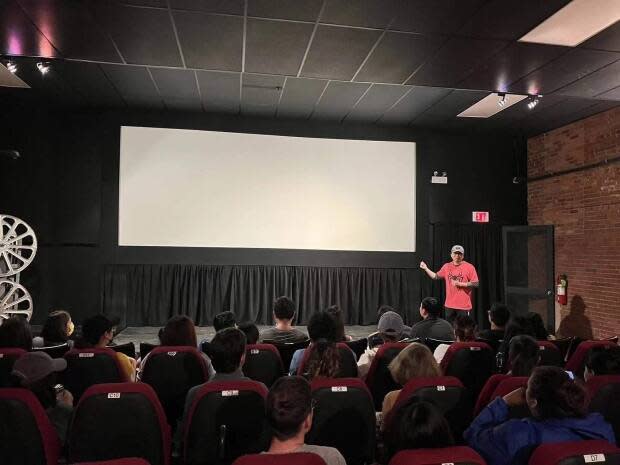
"It's a very important thing to my life," he said. "Because I did it and I finished a full film, and I can make it better next time."
During his time off from the hotel where he works, Ding is finishing a documentary about the experience of six Chinese women who are working and studying on the Island. He's also translating another screenplay he wrote into English.
'I follow the new dream'
Ding said the reason he would like to continue working in Canada is because he gets to create what he wants.
"Every screenwriter's story mostly have something about himself, from his life," he said.
"I come to Canada, I make movie, I do everything. I think it's [like] this movie. It means I give up something I want before and make a new dream and I follow the new dream. So today, I come to P.E.I."


